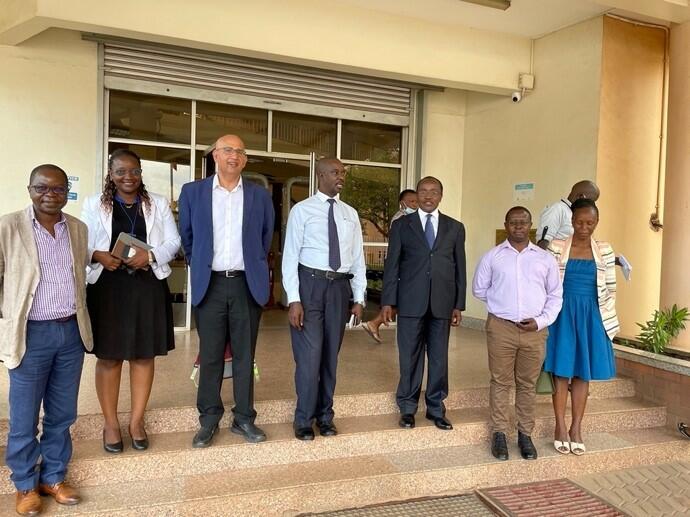
The RESPOND-AFRICA Group is holding meetings in Uganda this week with the Ministry of Health policy-makers, patient representatives and health care workers to strategise and plan together the next steps for the research programme. The meetings have been organised by Moffat Nyirenda, Josephine Birungi and colleagues, with Shabbar Jaffar visiting from the UK.
Studies on integrated prevention and management of HIV, diabetes and hypertension.
Three health facilities now already provide the integrated management model and a 4th is currently implementing it. These were part of The MOCCA pilot study, funded by NIHR. After the study had finished, the facility managers decided to scale-up integrated management for all patients (with HIV, diabetes and hypertension) as they had seen clear benefit. They each did this independently and without support from the research team. Vertical care is no longer available at these clinics.Dr Gerald Mutungi (Head, National NCDs Control Programme) and Dr Joshua Musinguzi (Head, AIDS Control Programme) and senior colleagues at the Ministry of Health expressed strong support and are committed to the national scale-up of integrated management of services for people with HIV, diabetes or hypertension in Uganda, as being tested in INTE-AFRICA (i.e. creation of a single clinic that provides integrated care for patients with any of these chronic conditions).
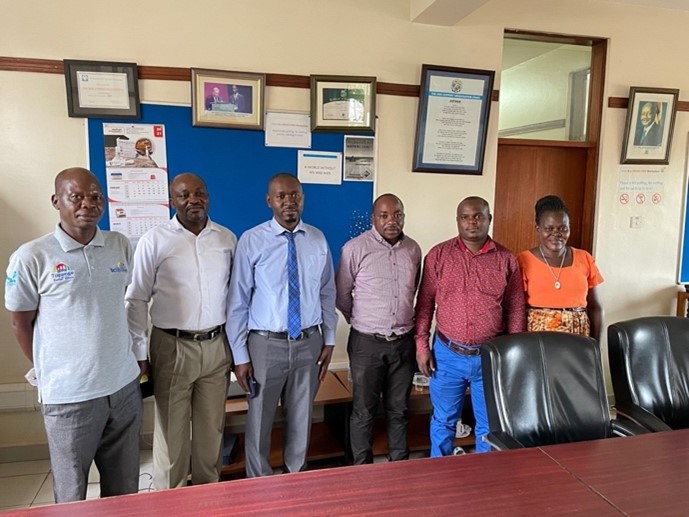
The facility managers reported that concerns to scaling up integrated care in these 4 clinics came from their clinicians fearing that people with diabetes and hypertension might be deterred from attending an integrated care clinic and people with HIV might fear the effects of integration on their outcomes. There seemed to be no reservations about integration from patients, and now some months later, integrated management remains popular with patients and with the health care providers.
The facility staff believe that there has been a clear reduction in stigma for people with HIV and people with diabetes and/or hypertension have not observed stigma. The facility managers reported that integrated management seems to reduce duplication and reduce costs more than was estimated in the MOCCA study since everyone is now receiving this model.
Drs Mutungi and Musinguzi advised that it is essential that these effects are quantified, that the team work with the Ministry to document integration for other health facilities, and that they make a plan for when INTE-AFRICA completes follow-up for both the intervention and control arms.
Community care study
The Uganda team have been discussing potential models of integrated community care for HIV, diabetes and hypertension. We asked the stakeholders: what should community care look like?
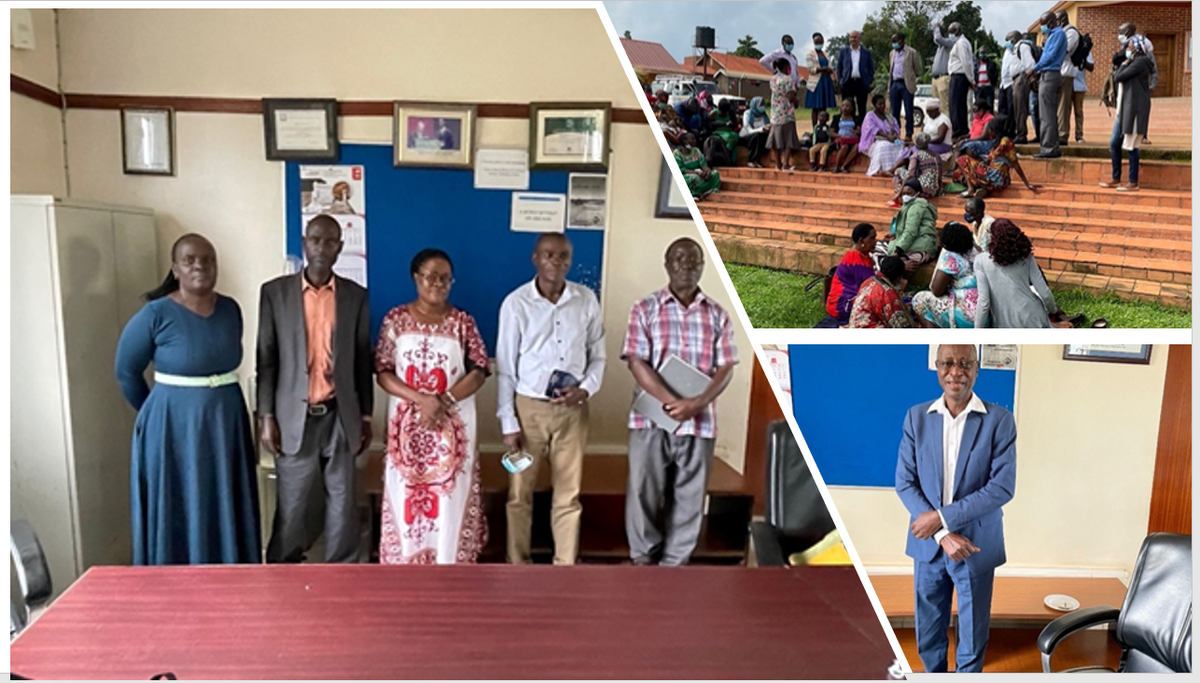
Research team consulting with patients living with HIV who are receiving community care (top right), with ‘expert patients’ living with chronic conditions (above), and Stephen Watiti (right), a patient representative who sits on the Uganda National Steering Committee. Since the 1980s, Stephen has been living with HIV and has survived Kaposi Sarcoma, MDR TB, and cryptococcal meningitis. He of course did get COVID, but this was like a walk in the park. He’s currently writing another book – aging with HIV.
We held small meetings with the different stakeholders, including with Dr Mutungi and Dr Musinguzi and then held a steering committee at the K-Hotel. The conclusions from these meetings are as follows:
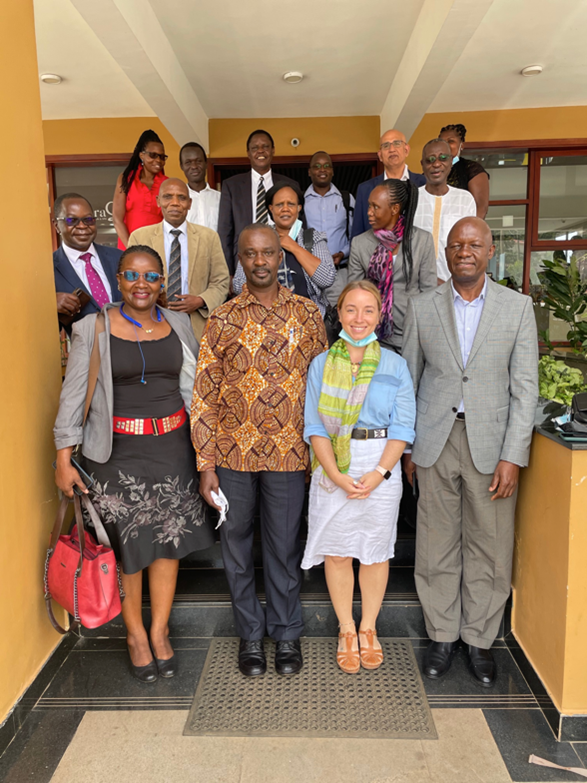
Community care should involve the village health teams and include an element of screening for people in the community in addition to care. The Ministry are un-concerned about the demand for services that this would identify. On the contrary, a clear estimate of demand will be a push for solutions including simple lifestyle/self-management approaches.
Setting up of clubs to facilitate patients to purchase cheaper drugs is essential.
More health education needs to be provided to patients about diabetes and hypertension and health care workers need more training in diabetes and hypertension care and management.
Clinics should initiate treatment and stabilise patients before referral to community care (as well as manage referrals).
The cadre of health care workers who should organise and lead existing community care activities varies widely and it is unclear which cadre(s) would be cost-effective.
Community care should be offered 2-3 monthly. HIV community care involves patients of mixed gender and integrated care should do the same.
The team in Uganda, with Dr Francis Xavier Kasujja as the co-ordinator, are now writing the protocol. Further consultation with patients, communities and public health services will take place thereafter.
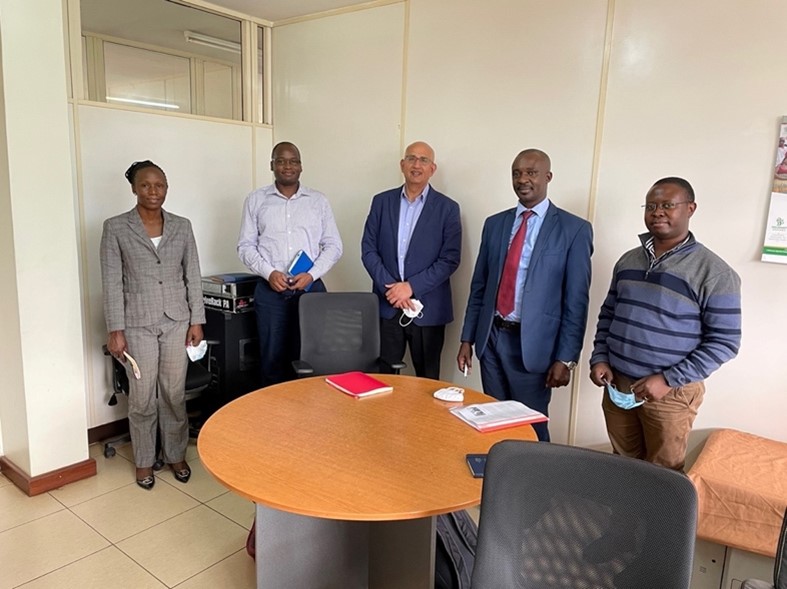
We look forward to further meetings, including in the UK, in the fullness of time. And in case you are wondering, almost all the partners are vaccinated and masks were removed very briefly for photos.